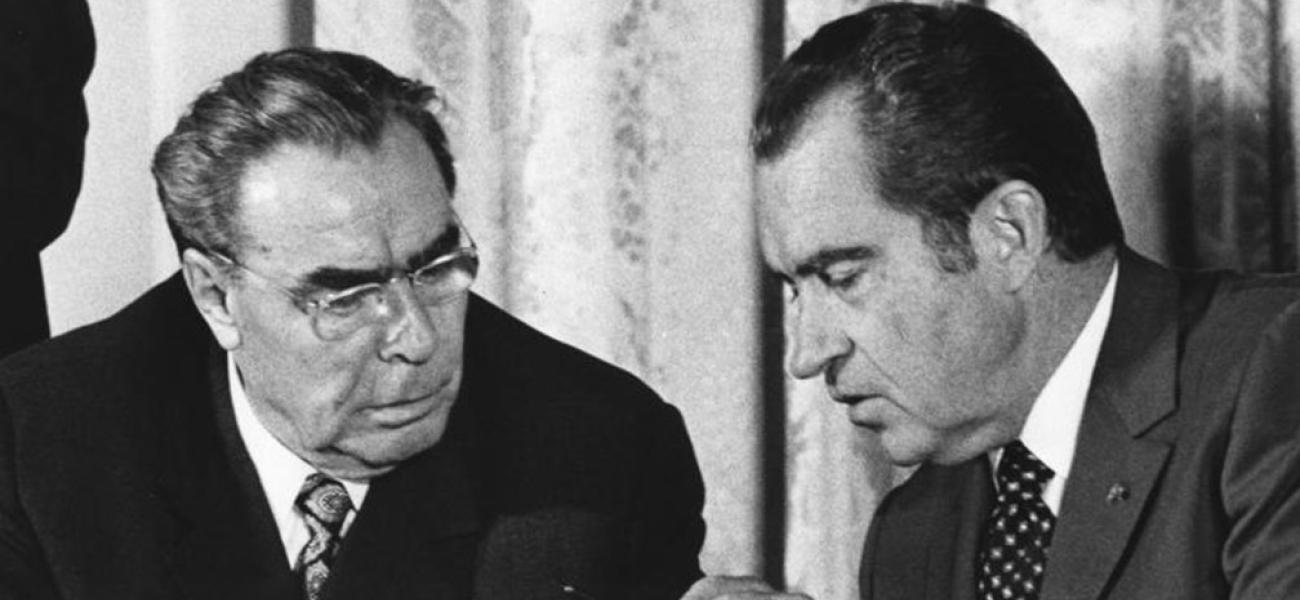
Stumbling Toward Armageddon
This is a summary of an article originally published by the New York Times with the subheading: "Newly declassified documents show why the Americans and the Soviets came so close to war in 1973."
The author writes that while the U.S. had long thought the Soviet Union's aggressive behavior during the Yom Kippur War in 1973 was an attempt to subvert American influence, "new evidence suggests it was simply a case of bad crisis management." On Oct. 24, 1973, Henry Kissinger, then secretary of state, received a letter from Soviet leader Leonid Brezhnev addressed to U.S. President Richard Nixon. The alarming missive stated that the situation in the Middle East between Egypt and Syria on one side and Israel on the other "had reached a dangerous point." The letter said that "if the Americans demurred, the Soviets might act unilaterally and send in troops." As Nixon was reported to be indisposed at the time of the letter's arrival, Kissinger called together a meeting of senior officials to discuss the U.S. response, and "moved the nuclear alert level to Defcon 3." Five days later, Yuri Andropov sent Brezhnev a letter, in which he warned his boss that the U.S. and Sadat "had conspired to overwork him by constantly keeping him engaged in difficult decision-making." Andropov, it seems, new that Brezhnev had become addicted to sleeping pills, which, when combined with alcohol, undermined his ability to think clearly. "Andropov and possibly other senior leaders evidently played a quiet role in keeping their country's leader from sleepwalking into a world war," but luck also clearly played a role. The lesson in this story for today's leaders, the author writes, is that "luck always runs out."
Read the full article at the New York Times.
Sergei Radchenko
Sergei Radchenko is a professor of international relations at Cardiff University.
Photo from the booklet "President Nixon and the Role of Intelligence in the 1973 Arab-Israeli War," shared as a U.S. government work in the public domain.
